A significant number of politicians want the government to fund various programs and to provide help whether its Medicare, subsidizing or canceling student debt, increasing welfare payments, and so on.
This may be their political beliefs (leaning more to the left) or they may be trying to woo constituents to gain political power, position, and prestige.
Regardless, by receiving this on-going government assistance, citizens are more apt to become reliant on government support, rather than be more self-sufficient.
However, this belief system or appeal to constituents seems to be quite different when the citizens are people who live a self-sufficient lifestyle. Then the government appears to exert effort to be obstructive rather than supportive and positive.
The Responsibility
Most likely, you would think that individuals who want to take full responsibility of any number of tasks including the ones that they can do better at by themselves cause little harm. Shouldn’t these individuals be allowed to be self-sufficient?

However, self-sufficiency is not as easy as you think. Even if you want to take full responsibility for whatever the task is and you feel that you can do it better yourself, it seems the government sets up roadblocks along the way.
Perhaps one of the main reasons is that the government’s focus typically is based on what is best for them opposed to what is best for the masses of people who the government represents.
So, for example, if you want to raise chickens in the city, there might be an ordinance that doesn’t allow you to pursue this interest at all or you might be restricted to a certain number of chickens based on the size of your land.
Another common example is putting up a fence. There may be rules concerning the maximum height, how far back from the road it is set, and even what types of material to use.
In addition, people are taught to respect and obey the government even at a young age.

Learning To Obey
The reasoning behind this approach is that if people are reliant on the government, they are more apt to show respect and be obedient toward the various laws. This compliance perpetuates the myth that “big” government is needed and the cycle continues.
To change the focus of the government to be truly for the people and allow more individual freedoms, it would mean having less government encroachment. Inevitably, the philosophy of “less government” is apt to trigger a reduction in the government work force. Many employees holding government positions would certainly balk at this idea and want to maintain the status quo. They would not want to give up their salaries, benefits, and perks.
With keeping the status quo (big government), there are many jobs for many people. If the government is reduced, a significant number would lose their jobs; they would no longer be needed. So the best thing to prevent this is to promote the need for government. To do this, simply make lots of people dependent on the government for daily living.
Related: Does Government Still Have Power Over You If You’re Off The Grid?

How Is This Done?
There are two specific ways:
- Prevent people from doing certain things so the government has the sole responsibility for them. For example, policing rather than individual gun ownership for protection, therefore, you will always need a large police force.
- Collect a lot of money (i.e., the growth of government bureaucracy impacts the ease of opening your own small business and pursuing other self-employment opportunities so it is harder for you to achieve wealth and success).
Thus, it is apparent that the government prefers larger corporations with HR departments, predictability, the status quo, control, and order opposed to the chaos of innovation (e.g., startups and entrepreneurs) characterized by smallness, flexibility, change, freedom, and newness.
Innovation is known to drive wealth, yet many government policies are designed to keep people “poor” and to shift the money from those who have earned it to those who don’t work or have minimal paying jobs.
For example, unemployment insurance, food stamps, and low-income housing assistance are government policies that reinforce people’s “poorness.”
Perhaps you are thinking that this is over exaggeration. Let me tell you something: it’s not.
All citizens must pay taxes, and by doing so, the government invests in technology and education, and provides goods and services for the American people. Specifically, the taxes support such common things as education, public transportation and infrastructure, and defense. However, the statistics show that only 1% of federal spending goes to K-12 education (that’s about 2 cents for every dollar), 3% for transportation (6 cents per dollar), and 18% (36 cents per dollar) for defense spending.
Related: 10 Money Saving Tips From A Cheapskate
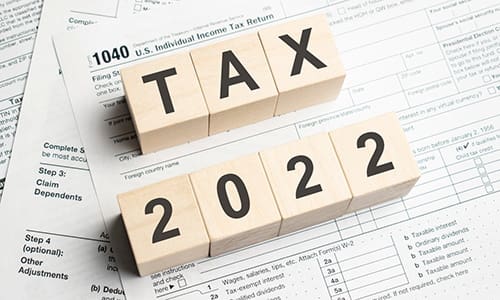
Where Does The Remaining Money Go?
Well, the majority of these funds go to Social Security, major health programs, and various safety net programs. The Social Security system provides retirement and survivors’ benefits along with disability payments. A major federal health program goes to Medicare as two other popular health programs, Medicaid and the CHIP program, require matching payments from individual states. These still carry a hefty amount of government financial support.
Then there’s the safety net programs which include all aid programs for low-income and middle-income families that are typically not a part of Social Security or other major health programs.
Although it seems that people are given things for free, this is not giving them their freedom. You see, if people were totally free, then there wouldn’t be a need for large government.
Do you remember Henry Kissinger’s famous saying about control? Well, he said, “If you control oil, then you control nations; if you control food, then you control people.”
During the 1960’s, the strategy in the United States began to deliberately destroy family farming in the United States and abroad. This eventually led to 95% of all grain incorporation. Today, the number of family farms and the average acreage-size continues to decline.
A fundamental pillar of prepping is self-sufficiency. Government seems to resist a change in status quo and giving up control. However, homesteaders who live a self-sufficient lifestyle are strong in their beliefs as well.
Hopefully, this article shares some light on yet another challenge for self-sufficient families to overcome.
You may also like:
 50 Tips From the Great Depression
50 Tips From the Great Depression
How To Make The Invisible Root Cellar (Video)
Best Homesteading Movies To Watch
My Advice For All Homesteaders Out There
25 Basic Life Skills That Should Be Taught in School (But Aren’t)
Vegetable Independence – 100% Self-Reliant Vegetable Production
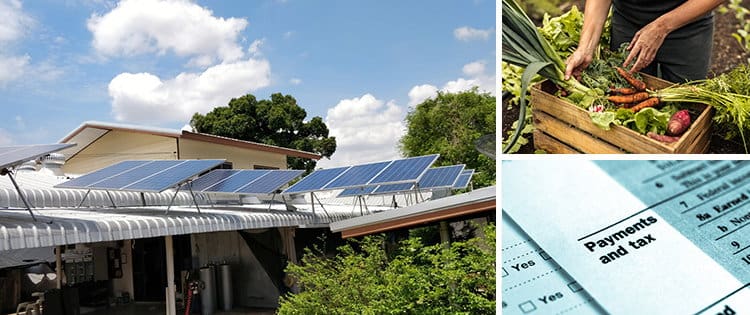

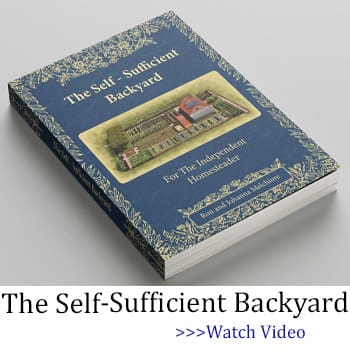


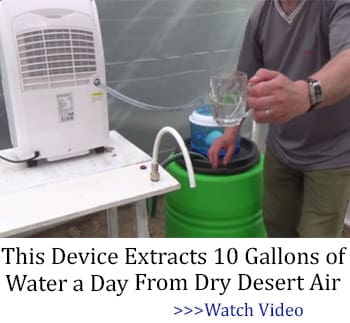

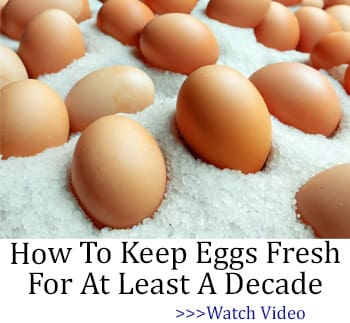

Although I agree with your general premise, you do have your math wrong, and may want to correct it. % of a dollar is easy. A dollar = 100 cents. 1%=1/100 or one cent etc. 18%= 18 cents.
Kindly,,
I think that the calculations are OK. The author referred to 1% = 2 cents (from federal spending / budget). Great article I agree
This article is simplistic. If you want to live in a city and neighborhood, people may not want chickens making noise, or any number of other issues -where you need to live together in “community” there will be rules established for people to do that well.
Also, the states that complain the most about government spending are the ones taking more than they contribute. These are by and large Conservative states.
And third, when we see catastrophes and huge weather emergencies, which we will continue to see more of, there are literally hundreds of people that welcome the relief that gets provided.
So… if you want to be self-sufficient, then be it. Why blame the government that you can’t be. Isn’t the notion of self sufficient also carry the onus of self responsibility?
If you want chickens, move to the country, to a community that has no problem with acing them. Or… look and see what you CAN do where you are and take those steps forward.
Stop complaining and BE Self sufficient.
I would ask that these articles keep to the subject at hand, self sufficient projects. Please Keep your political viewpoints to yourself.
What John said. This article is nonsense.
Hi,
Thank you so much for your feedback, we really appreciate it.
We are very sorry if this article offended anyone, this was not our intention. Our articles are written by people from all around the country, with different background, views and experiences. We try to share everybody’s point of view so we can learn from each other.
This article does not reflect the website’s views.
Well, I liked and appreciated it! being self-sufficient and small government go hand-in-hand.
There is a darker and Satanic reason for all these loss of liberties. It is to set up the One World Government under the Beast System which includes a One World Financial System where you can neither buy or sell without being a part of this System under the control of the Anti-Christ! Read Revalation the last book of the bible.
The government, at this point in time, is simply a mask worn by the self-styled elites. It is necessary for multinational corporations as well as private oligarchs to maintain the illusion of democracy here in the U.S.,. It helps them to, for one thing, blame their high crimes & misdemeanors throughout the world on The American Public. With the advent of a pure fiat economy in the early 20th century and the elimination of the precious-metals standards and banking conducted with metal reserves required under law by 1936 (FDR), it was made possible for those who have (lots and lots of loot to their names, that is) to gradually and carefully pervert the law, right along with those who, at least presumably, make, enforce and judge the laws. They also absconded with the commons while they were at it. The last example being the, “old”, analog broadcast airwaves. It apparently has escaped some people’s attention, but in 2000, the Florida Recount in combination with the resulting per curium decision by the SCOTUS panel in Bush v. Gore, not only resulted in the illegal accession to power of George W. Bush but also insinuated Diebold touchscreen and other types of voting devices into the American polling place. And Diebold is (has always been) a corporate creature belonging to the Banksters. Since that time, voting, in our zombie-shell of democracy, has simply been We, The People dutifully showing up at the polls in order to validate the ongoing fraud. The only people who can get any attention and funding for their fake campaigns being the ones who, “win”, during the wealth primaries!! And since we’re all peasants, servants and slaves who persist in believing ourselves to be free somehow, well… why not just let it roll? I mean, what better exploited-class than the one which is completely deluded, divided, captive and inured to a life-time bounded by bread and circuses, completely unnecessary warfare and a cycle of eternal financial obligation both to the Master Class and it’s legal fictions!?! Answer: There cannot be any better exploited-class than the one described until there’s one which has to pay for air to breathe, as metered by masks clamped tightly over our mouths and noses. Even then though, the Masters will want something more subtle. Because whips, chains, scent hounds, coffles and, yes, breath meters… are too easily identified and resented as enslavement emblems (even by the most foolish of fools). And that’s why the government dislikes and discourages self-sufficiency. The self-sufficient are vastly less easy to fool, terrorize, render helpless, make dependent and then enslave! And, if they’re conscious enough, they’d certainly prefer actual freedom to freedom-like bondage and death to even the cushiest types of enslavement! Not very polite of me to say so, I know, but there you have at least part of it. The very part we’re in right now.
Well said. Government grows like cancer. People aren’t educated about their feelings, the be creative, think for themselves, about the law, about money, about our nations history, nor psychology. Our forefathers set up our government for America because they knew the most likely takeover would come from the government, just like the monarchies, and corrupt religious leaders going back even before the Sadducees, Pharisees, and the Sanhedrin that Jesus was dealing with. I’m sure glad more and more people are waking up! Tonight we’re gonna find out where you fans really stand! Wheat or chaff?
The Republican government is taking away our rights, this will be next.
Wonderful and well written article. I had to message it over to my husband.
Small government = Large freedoms
Not into self sufficiency and small government, maybe you’re in the wrong place.